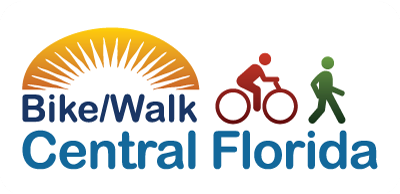
The planned bike-share program in downtown Orlando is behind schedule but appears to be closing in on financial sponsors that could get things rolling by year’s end.
Cyclehop, based in Miami Beach, is in talks with Florida Hospital and the transportation consulting firm VHB to underwrite at least two racks where bikes would be available.
Peter Martinez, a Cycle-hop partner in Orlando, said he expects to have agreements possibly within a week.
“We hope to have an answer,” he said.
Sponsorships are critical to bike-share programs because the revenue they generate from users typically is not enough to sustain the operation. The banking conglomerate Citi, for instance, placed its name on the massive bike-share program in New York City.
Cyclehop’s contract with the city, which is making public space available for free, calls for the company to secure $200,000 in sponsorship money before the proposal can move forward.
Martinez said the possible VHB and Florida Hospital accords would not reach that goal. “We would need more [money],” he said.
Verbelee Nielsen-Swanson, a Florida Hospital vice president, said in an email, “Florida Hospital is working with Cyclehop to sponsor a bicycle-sharing station at the hospital’s campus near downtown Orlando. We are excited about the program, as it encourages healthy living, wellness and exercise.”
Kyle Taniguchi, a transportation consultant with VHB, said “having a bike-share program is something we feel strongly about.”
Cyclehop has promised to buy 200 bikes and place them at 20 locations throughout town, some of them near the four stations in Orlando for the SunRail train.
The city has agreed to let the program start with four racks in place by Dec. 31. Cyclehop officials expect riders to come from SunRail passengers, tourists and people looking for a little fun.
The bikes were supposed to have been purchased by August, according to city officials. But Cyclehop pushed that back because of technological problems with the GPS tracking systems needed to locate the bikes.
Brooke Bonnett, who is working with Cyclehop for the city, said, “We have confidence in the ability of a bike-share program to be successful.”
The GPS issue, she said, is critical to Cyclehop’s success because it means users do not have to return bikes to company racks, like most programs. Instead, the bike could be left anywhere in the city, locked up, for instance, to a fence, where it could be retrieved by a Cyclehop worker.
“It provides more flexibility. It’s best to go ahead and provide them the extra time,” said Bonnett, Orlando’s director of economic development.
The bikes, which cost $1,200 apiece, probably will rent for about $5 an hour, with annual memberships available as well.
dltracy@tribune.com
Copyright © 2014, Orlando Sentinel

